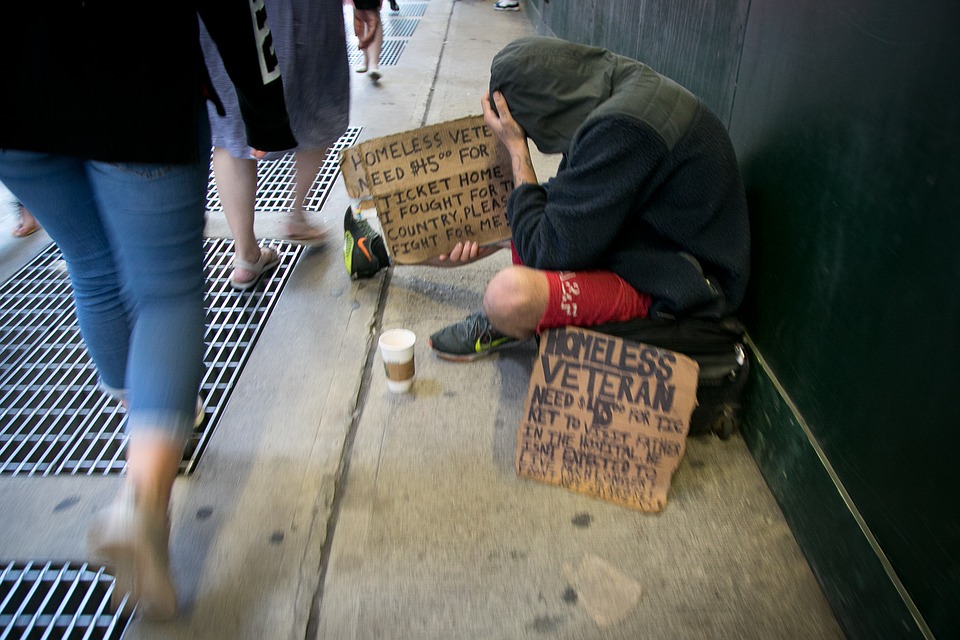Robert Plummer’s days without a place to call home may finally be coming to an end.
After 13 years of waiting, Plummer, a veteran of the United States Army, recently received a housing voucher to help him rent an apartment. While he is currently staying at a District shelter, Community for Creative Non- Violence (CCNV), he hopes to be moving into an affordable place sometime in the near future.
Plummer’s story of hardship and hope is not unique among veterans; 107,000 are currently on the streets and five times that number are at risk of becoming homeless on any given day, according to Secretary of Veterans Affairs Eric Shinseki.
But after many years, the crisis of homelessness among veterans may be abating. In 2009, Shinseki unveiled the department’s plan to end homelessness among veterans by 2015 by marshalling the resources of the government, business and the private sector. And last year, the number of veterans homeless on a typical night dropped 18 percent, the VA announced.
But until all veterans have homes, efforts such as the Washington VA Medical Center’s annual Winterhaven Homeless Stand Down provide links to basic services. For this year’s event, held Jan. 22, the local VA hospital partnered with more than 70 community agencies, service organizations and national and local businesses to provide an assortment of services to homeless veterans. Doctors and dentists were there, as well as job and benefits counselors; even barbers showed up to care for the hundreds of vets who came. A coat drive and a festive meal were also features of the day. Shinseki himself showed up.
“We think in the next five years we can go from rescue to prevention,” he said. “And if we get to prevention, wonderful events like this, as good as they are, will become a thing of the past.”
According to Shinseki, ending homelessness begins with health care, checking mental health, jobs, education and dignity for those who have done tremendous work for our country through the military.
“After all they’ve done,” he asked, “why are they homeless?”
Plummer, who was at Winterhaven, had a life story that asked the same question.
He served in Vietnam and was wounded during combat when his unit stumbled upon the North Vietnamese Army; his unit fought through the night and was finally evacuated by choppers the next morning. Although Plummer told his story with pride, he said he doesn’t see himself as a hero.
“I walked with some heroes, but the heroes are the ones we left behind,” said Plummer, who has plans to return to school.
“God has something in store for me, I just have to wait it out,” he said.
Kenneth Barnum, an outreach social worker at the VA, said his work focuses on veterans like Plummer. His goal is to provide them with the help and resources that they need to rebuild their lives.
But the first step in reaching homeless veterans is finding them and engaging with them, said Barnum. He, together with other outreach social workers travels to parks, soup kitchens and shelters making sure that homeless veterans in the area are aware of all the services that are available to them through the hospital.
“My dream is to go out and do the kitchens and do the parks and do all the shelters and find no veterans. That’s the day I look forward to,” said Barnum. “That’s the day I look forward to.”
In addition to services, the hospital offers a compensated work therapy program, which provides veterans with six months of work at the hospital at $8.25 an hour for maintenance, housekeeping or grounds work.
Army veteran Frank Addison also came for Winterhaven, and looked appreciatively around him at all the services being provided.
“It’s good to see them giving veterans help, warm clothes and food,” Addison said.
Addison himself is no stranger to the VA hospital, in fact he is there on a daily basis. He is a participant in the job program, which he hopes might lead to a permanent position. And while he is currently living in a veteran’s transitional home, he is on a list for a housing voucher.
While transitional housing slots are nearly always full, according to Barnum, additional funding has made housing vouchers more readily available.
“There are a lot of different places we can call on to get people what they need,” said Barnum.
The help is having an impact. From 2009 to 2010, while the number of homeless people in the District rose, the number of homeless veterans fell. The annual homeless enumeration sponsored by the Metropolitan Washington Council of Governments found 497 homeless individuals who identified themselves as veterans, a 13 percent decrease from 2009.
Advocates are encouraged by such news. For his part, Shinseki gave credit to President Obama for his role in the effort to end homelessness among veterans.
“He’s provided resources in the form of a budget that’s probably the largest budget in the last thirty years, that enabled us to do this,” Shinseki said. But the VA secretary also gave credit to all the agencies and organizations dedicated to working with veterans every day, including those who came out to help at Winterhaven.
“We couldn’t do this on our own. We rely so much on the people who show up at these events,” said Shinseki. “The creative geniuses are all these folks from the various agencies who know those veterans, know where they live, what their needs are, so we can go to work.”




